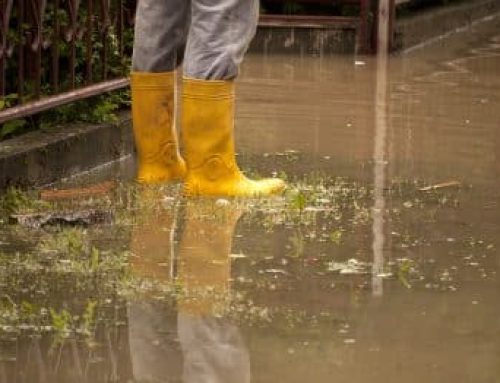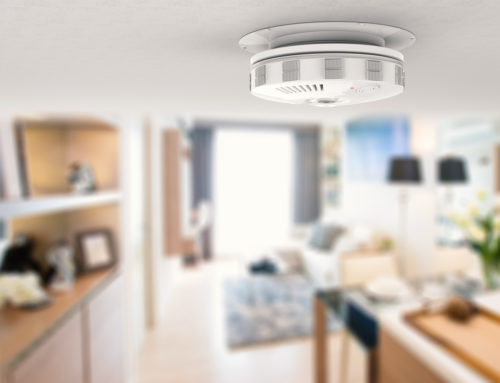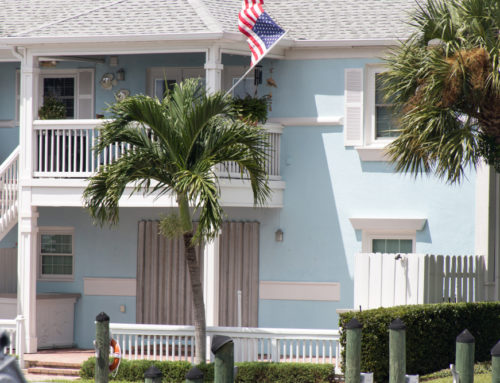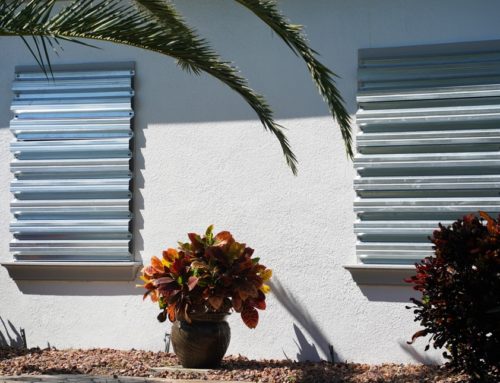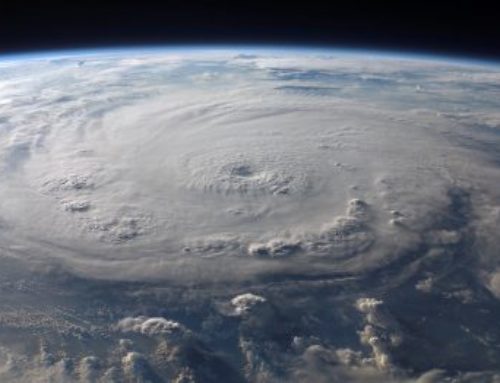Your tenants are likely hosting friends and family for the holidays. If they are not attentive to the finer details, a cooking fire can occur, or someone may be injured on the icy front steps. Encourage their safety, avoid holiday liability, and ensure your property doesn’t get damaged during the jolly season – these 10 areas are key:
1. Trees
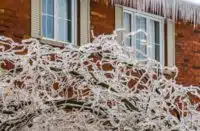 There is no time like the present to check your trees. It may seem expensive to hire this service, but one storm can cause even more costly damage and may create additional hardship if you have to move your tenants out. As tree trimming can be dangerous, we recommend hiring a certified arborist. The Tree Care Industry Association (TCIA) has a search on their main site: www.tcia.org. They also run www.treecaretips.org where they address ways to identify “at-risk” trees, fight common pests, and more. Another good resource is the International Society of Arboriculture (ISA). You can learn more about proper tree care at www.treesaregood.org, a site that ISA hosts.
There is no time like the present to check your trees. It may seem expensive to hire this service, but one storm can cause even more costly damage and may create additional hardship if you have to move your tenants out. As tree trimming can be dangerous, we recommend hiring a certified arborist. The Tree Care Industry Association (TCIA) has a search on their main site: www.tcia.org. They also run www.treecaretips.org where they address ways to identify “at-risk” trees, fight common pests, and more. Another good resource is the International Society of Arboriculture (ISA). You can learn more about proper tree care at www.treesaregood.org, a site that ISA hosts.
2. Parking
Familiarize yourself with state and city parking laws. Are there any areas in the neighborhood where it’s illegal to park? Unsafe to park? Your local Department of Transportation can help you navigate these parking issues. For example, the Los Angeles Department of Transportation (LADOT) has a specific page on their website dedicated to answering the question “Can I park there?”
Include guidelines for parking in your lease, making sure that your tenants are aware of the locations that holiday guests are encouraged to park, especially if they will be there for several days. In addition to including the details in your lease, sending a nice reminder note before the holiday frenzy begins will encourage them to do this correctly.
3. Sidewalks & Steps
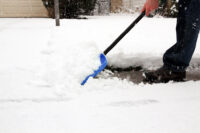 One of the most common liability claims at an investment property is a slip and fall. You will want to make sure that your liability coverage has a high enough limit, but more importantly, preventive maintenance can keep an injury from occurring on your property in the first place. Specify in your lease who is responsible for clearing walks and driveways in stormy weather. If the job will fall to your tenant, educate them about the risks of not keeping up with this innocent task. Do they want their best friend to end up with pins in his ankle?
One of the most common liability claims at an investment property is a slip and fall. You will want to make sure that your liability coverage has a high enough limit, but more importantly, preventive maintenance can keep an injury from occurring on your property in the first place. Specify in your lease who is responsible for clearing walks and driveways in stormy weather. If the job will fall to your tenant, educate them about the risks of not keeping up with this innocent task. Do they want their best friend to end up with pins in his ankle?
4. The Roof
Inspect your roof’s condition. Any buckling or broken shingles will need to be replaced to keep water from coming inside. To prevent ice dams, you will also want to make sure your attic is properly insulated. The Ice Dam Guys’ site has a Learning Center that points out the 5 telltale signs of ice dams and also has information about how to safely remove snow from your roof. If a large snow occurs, contact your tenants quickly. You don’t want them up on a dangerous roof – injuries from roof falls can be particularly severe or even fatal.
5. Outdoor Lights & Decorations
Many people still hang outdoor lights along the roof’s edge during the holidays. Using the proper height and type of ladder can keep your tenant from becoming one of the 90,000 people that will receive ER treatment from a ladder-related injury this year, per the Consumer Product Safety Commission. Did you know that there’s an American Ladder Institute? The ALI is the American National Standards Institute (ANSI) approved developer of ladder safety standards. Check out their “Ladders 101” or “Basic Ladder Safety” in the Safety and Training area of their website: www.americanladderinstitute.org.
6. Heating & Fireplaces
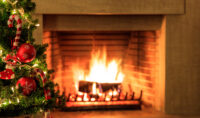 More house fires occur in the months of December, January, and February than any other time of year, the National Fire Protection Association reports. Many of those fires are caused by heating appliances. Don’t be lazy in maintaining your HVAC system. Dust buildup is a fire hazard. HVAC systems should be cleaned at least twice a year. Ensuring your tenants have proper heat can also keep them from using the stove or other dangerous methods to stay warm.
More house fires occur in the months of December, January, and February than any other time of year, the National Fire Protection Association reports. Many of those fires are caused by heating appliances. Don’t be lazy in maintaining your HVAC system. Dust buildup is a fire hazard. HVAC systems should be cleaned at least twice a year. Ensuring your tenants have proper heat can also keep them from using the stove or other dangerous methods to stay warm.
If you have a fireplace in any of your properties, have the chimney inspected before your tenants use it each year. The creosote, or residue buildup inside your chimney, is highly combustible. If it builds up enough and the internal temperature is hot enough, it could start a chimney fire, says the Chimney Safety Institute of America. Search for a CSIA-certified professional and learn more about chimney care on their website: www.csia.org.
7. Cooking
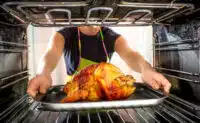 It is easy to get distracted while entertaining guests, so remind your tenants of safe cooking practices. Cooking is the leading cause of kitchen fires according to the NFPA. The NFPA has a variety of tip sheets to pass along to your tenants on their website www.nfpa.org. They’ve done all the work for you – just print, or e-mail!
It is easy to get distracted while entertaining guests, so remind your tenants of safe cooking practices. Cooking is the leading cause of kitchen fires according to the NFPA. The NFPA has a variety of tip sheets to pass along to your tenants on their website www.nfpa.org. They’ve done all the work for you – just print, or e-mail!
You may also consider purchasing a product called StoveTop FireStop. When their wick is ignited, the small cans release a fire suppressant right over the pan, putting out the fire. A product like this can reduce the cost of a kitchen fire from tens of thousands of dollars (or even a total loss) to under a thousand. Learn more on StoveTop FireStop’s site.
8. Rodents, Pets, and General Cleanliness
Maintaining the interior of your property actually begins during tenant placement. One way to find out how a prospective tenant will treat your property? If there is something that you need them to sign, turn that into an opportunity to visit their current residence. Even if you aren’t able to view the inside, the outside of a person’s house can be a good indicator of the care they invest there.
As for rodents and other pests, be on the lookout for holes or cracks that a critter can crawl through. Did you know that mice can enter through a hole the size of a dime? If you haven’t already re-sealed the windows and doors this season, get caulking!
 9. Candles & Indoor Decorations
9. Candles & Indoor Decorations
Decrease the risk of fire from an unattended candle by encouraging tenants to use battery-powered ones. Many candles on the market today imitate the natural light of a flame without the fire risk. The NFPA also recommends placing trees and other decorations three feet or more from fireplaces and other heat sources. Check light strings for signs of exposed wires or other signs of deterioration and avoid linking too many strings of lights together. Keep it to three for “mini-string” sets and 50 lights if using a string with screw-in bulbs.
10. Plumbing
Investing in an area where it never freezes? Your plumbing system will still need attention. Water heaters require annual maintenance. Draining the tank once a year to remove sediment and replacing the anode rod before it fails can slow down corrosion inside the tank and extend the life of the water heater.
For colder climates, pipes near exterior walls will need to be insulated. Teach your tenants to be proactive in keeping the pipes from freezing when a cold snap is forecasted: they should open cabinet doors below the sink and keep faucets on a slow drip to keep the water flowing through the pipes. Lastly, if any of your properties are vacant during this season, shut the water off at the street and drain the system to avoid any pipes bursting or vandals causing additional damage while going after copper pipes.


